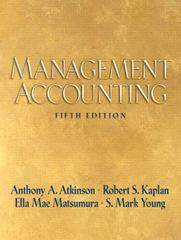Question
1. What is meant by the term nonqualified deferred compensation for income tax purposes, and for whom is it most often used? 2.At what time
1. What is meant by the term nonqualified deferred compensation for income tax purposes, and for whom is it most often used?
2.At what time is the employer allowed to take a deduction for its contribution to a nonqualified deferred compensation plan?How does this differ from the operation of a qualified plan?
3.Identify characteristics of each of the following primary types of deferred compensation agreements. Discuss the applicability of IRC Section 409(a) to each plan.
a.a salary continuation plan
b.a pure deferred compensation arrangement
c.rabbi trust
24.Robert Jones is a corporate executive with Bee Hive, Inc., a manufacturer of processed food.Robert wants to defer a portion of his compensation payable in the current year to future years when his marginal tax bracket will be lower.He wants some assurance, however, that the compensation to be deferred will be paid eventually.Bee Hive has proposed to Robert that it will purchase a life insurance policy on his life that will accumulate sufficient cash value to pay the promised benefit.
a.Assume that this policy is owned by Robert and that he can surrender the policy for its cash value at any time as an incident of this ownership.Identify the income tax implication of this form of deferred compensation plan to Robert.
b.Now assume that Bee Hive, Inc., is the named owner of the policy on Roberts life and that all proceeds are payable to it.Would this charge the income tax implication of the compensation plan to Robert and, if so, how?
25a.Jerry Holts company transfers 100 shares of its stock to Jerry as a performance incentive measure.Jerry currently is the sales manager for the company.Under the terms of the transfer, Jerry must sell the stock back to his company at $50 per share (the same value of the stock at the time of transfer to him) should he leave employment within five years.
a.Identify the income tax implication to Jerry during this five-year period.
b.At what time may Jerrys employer take a deduction for the value of the stock transferred to Jerry, and why?
25b.Assume the same facts as in Review Question 19, with the additional fact that, at the end of the five-year period, the stock of Jerrys employer is valued at $100 per share.
a.If Jerry made a Section 83(b) election at the time the stock was transferred to him by the employer, how much, if any, would be includible in his income now?
b.If a Section 83(b) election were not made, what amount would be includible in Jerrys income at the end of the five-year period?
Step by Step Solution
There are 3 Steps involved in it
Step: 1

Get Instant Access to Expert-Tailored Solutions
See step-by-step solutions with expert insights and AI powered tools for academic success
Step: 2

Step: 3

Ace Your Homework with AI
Get the answers you need in no time with our AI-driven, step-by-step assistance
Get Started


